March 30: "Reinventing Rock 'n' Roll: The Beatles' Rubber Soul and Revolver" at Wolfies Grill3/29/2016 Gteorge Martin, the Beatles' producer, died earlier this month at the age of 90. Paul McCartney lamented the loss by saying, "If anyone earned the title of the fifth Beatle it was George." (Source: http://www.usnews.com/news/entertainment/articles/2016-03-09/george-martin-the-perfect-catalyst-for-the-beatles-success) And indeed, Martin was an integral contributor to the band's music and hugely responsible for their artistic and commercial success.
For that reason, my blogging throughout my third tour of 2016 (24 speaking engagements in Ohio, Pennsylvania, New Jersey, and New York between April 4-29) will feature Martin-oriented subjects in addition to my standard travel documentation. It will not be an exhaustive study of Martin's contributions to the Beatles (which are so extensive that such a comprehensive catalog would take much longer than 26 days to address and critique), but rather a series of highlights - examination and consideration of "The Best of George Martin" and how his efforts enhanced the Beatles' music. But that tour won't initiate for another few days. More immediate is my new hometown debut tomorrow night at Wolfies Grill in Carmel, Indiana: Wednesday, 30 March 2016, 7:30-9:00 p.m. Wolfies Grill, Merchant Square Shopping Center, 1162 Keystone Way S, Carmel, IN Reinventing Rock 'n' Roll: The Beatles' Rubber Soul and Revolver The sophisticated songwriting and experimental recording techniques on the Beatles' sixth studio album Rubber Soul and seventh studio album Revolver helped establish the rock album as a legitimate art form and anticipated the “concept album” Sgt. Pepper . This 90-minute multimedia presentation will discuss and analyze highlights from both albums with the intent of explaining and illustrating how these groundbreaking practices helped shape the Beatles' music specifically and rock music in general. The program will be supplemented with audio excerpts from interviews with the band members and clips of early song drafts. THIS IS A PRIVATE EVENT, BUT THERE ARE A FEW EXTRA CHAIRS WHICH ARE OPEN TO THE PUBLIC. CONTACT JONATHAN EVANS AT [email protected] TO SEE IF THERE ARE STILL OPENINGS.
0 Comments
I arrived back home in Camel, Indiana yesterday, officially concluding the two-and-a-half week tour which took me from Indiana through Kentucky, Tennessee, Mississippi, Arkansas, Texas, New Mexico, and Arizona. And I'm sure glad to be back! Touring is rigorous. And while I love my job, it takes an awful lot of work. First, I have to prepare the presentations. Each one takes countless hours of research and analysis. Then that raw data must be structured and compiled into a cohesive and comprehensible slide show combining historical and musical analysis with audio examples from the songs and interviews with the band members and their associates. All of that must be easily digestible to an audience and simultaneously intellectually enlightening or else the whole project is worthless. Second, I then have to find a host location where I can deliver the program. I write hundreds of emails to potential hosts, most of which are ignored, but maybe a third of which respond with interest. To book enough presentations to sustain a full-time career takes a tremendous amount of time and effort. Third, I must travel to the host location. Sometimes, as in the presentation I gave at the Hussey-Mayfield Memorial Library in Zionsville, IN on 1 February 2016, that location is only a 10-minute drive from my house. On the other hand, the presentation I gave at the Liverpool Central Library on 16 July 2015 was 3,207 miles as the crow flies from my then-apartment in Hartford, CT, and the journey took a total of 26 hours from door to door. When planning and scheduling tours, I must ensure that I can safely and efficiently arrive at the location. I plan these tours very carefully, and I have yet to cancel any of the more than 300 programs I've booked so far (though the hosts have canceled a few times, such as in Lake Dallas last week). Fourth, I have to deliver the presentation. None of the above steps matter one iota if the presentation itself is sub-par. Since travel is inherent to my career, I spend a good deal of time away from home. I miss my wife and puppy terribly - especially at the end of the day, in between finishing a program and going to sleep. Since February 8, I've spent a total of four days at home (March 4-7), in between my Florida and Arizona tours. And I was ill with food poisoning for all four of those days. So now it's time for a well-deserved and physically healthy stay-cation. Being a full-time professional Beatles scholar is fun work, and very engaging work - I visit many new places and meet many new people. One of my favorite parts of my job is the opportunity to meet and talk with fellow Beatles fans, who continually impress me through the sharing of their own stories and knowledge. I am perpetually amazed at how much I learn by teaching. There's nothing I'd rather do... but right now it's sure good to home! THE END
JOHN (Aaron's father and traveling companion): Our time together sped by like a Greater Roadrunner. I'm hoping that meant I had fun on this lecture tour with Aaron. But knowing I had to drop Aaron off at the airport in a matter of hours so he could return home at the end of our journey was worse than a kick in the head with a lead boot. I was thinking about the past two and a-half weeks and, while we didn't do a lot of soul baring or deep, personal discussions -- neither of us are that type -- our travels were enjoyable. Much of our conversation in the car was him relaying his phone GPS directions, and me asking two minutes later to repeat them. I felt good when he shared his future plans with me. We gasped at the spectacular terrarium landscape that was Texas, New Mexico and Arizona. We marveled at the moon emerging from behind a mountain, or a large hill, depending on whom you ask, while cruising along the highway after an evening talk at the Juniper branch of the Phoenix library. "I've never seen the moon like that before," Aaron said, and I agreed. The moon was so grand it almost dwarfed the mountain, or hill, like a saucer-sized eye trying to peek over the peak. Near the airport, Aaron pointed to several airborne planes with navigation lights as insistent as controlled explosions. "They look like ducks in a row," he said. We approached the highway exit for the airport. The GPS noted we had to stay to the right. "We'll get off the highway onto one of those loopy things," Aaron said, referring to the exit ramp that forced us into a U turn toward the airfield. We easily found the Delta drop-off zone at Terminal 3. I pulled alongside the curb, hopped out and opened our Chevy Suburban's tailgate to pull out his bag and backpack. We hugged. "I'm really going to miss you," I said. "I'm going to have to really pay attention to where I'm driving now." "Yeah, that's one thing," he said. "Well, there's more than that. I'm going to miss having you to talk to and to point out all the strange things we see on the road." We hugged again, and he walked off. I returned to the driver's seat and looked for the way to retrace our tracks. I was confounded at first by seeing a sign pointing to Interstate 10, which I knew I'd eventually have to get to, and then a sign for Highway 143, which was the last road we were on before reaching the airport. Should I follow the arrows to the interstate? Or get into the lane for 143? Aaron...? I made an executive decision (wild guess) and got onto 143. The road to the highway curved to the right and bent back toward the airport. Is this correct? It swerved to the right again, and signs for terminals 3 and 4 suddenly appeared. Oh no, am I going back to the Delta terminal after leaving it just minutes before? Aaron...? The road took me past terminal 3 and 4 and finally exited to 143. I was able to do it -- go in the right direction without electronic help. Would I miss Aaron? Of course I would. Would the rest of the trip seem a bit incomplete without him? Yes, it would. Would I eventually get to the point where what I was doing would overshadow the fact he was not there in the passenger seat? I didn't doubt it. I swung from 143 into the lane that would take me to I-10 South, then to Highway 60 and then State Route 101. As I made the lane change, the full moon -- brighter than any jet airplane's lights -- seemed to balance above the highway in front of me, out of the way of the mountains/hills and making me marvel once again. It also reminded me that I had no one there to share it with. Confucius say: "Man who behave like ass will be butt of those who crack jokes."
I'm sitting in the Detroit airport, waiting for my connecting flight to Indianapolis. It's about 6am EST (3am AZ time). On my way into the Phoenix airport last night, I noticed the full moon shining bright (technically a waning gibbous, but pretty close to full). On my way into the Detroit airport moments ago, I noticed it again. As we were waiting to disembark the plane, the man across the aisle stood up and grabbed his luggage from the overhead compartment. In fashion terms, this particular gentleman was apparently stuck in the late 90s because his pants were waaaay too big. With suitcase in hand above his head, those pants fell to the ground. And I had a front row seat. Let's just say the moon was full in more ways than one! I fly out of Phoenix on a red eye late tonight, which will put me back home again in Indiana early tomorrow morning. I've been thinking a lot about my blog from the other day on how I learned how to teach. People will often tell me after my presentations, "You're such a natural teacher." And while I'm pleased that I can give such an impression, that observation is entirely inaccurate - there's nothing natural at all about my teaching skills. Rather, they are entirely the product of lots of experience, hard work, and the tenacity to bounce back after miserable failings. That being said, the other skill fundamental to my career (the ability to analyze music) IS largely a natural talent. Unlike my teaching skills, I really don't have to work terribly hard at it - somehow my brain just does the work on its own with little conscious effort from me. It's a "gift", as such abilities are often described. Brad Roberts, lead singer of The Crash Test Dummies, described this phenomenon in the song "How Does a Duck Know?", when he sang, "All my organs doing their jobs, no help from me." Of course, learning analytic techniques in the first place took time and practice to perfect (nobody is born with that kind of gift). And I do have to spend a great deal of time and effort conducting the analysis in the first place. But once that raw data enters my mind, my brain somehow sifts and sorts it all, intuitively finding connections and drawing conclusions.
Paul McCartney articulated the act of songwriting in similar terms: "It comes through your own layers of personality, your own mindset and your musical background," he said. "My brain will filter out all that I don't like.” (Pritchard and Lysaght, The Beatles: An Oral History, p. 193) Paul is describing the creative process (putting things together) whereas in my case it's the same phenomenon but analytic (breaking things down). But the concept is the same: Let our brains do their thing. The only comparison I can make is that it's quite similar to using a calculator - you punch in the figures and operations, then it spits out the data without any further effort from the user. If a user doesn't know how to accurately enter the numbers or the proper order of operations, then any subsequent calculations will be inaccurate and worthless. But once a user learns how to properly use the instrument, the calculator itself does all the hard work while the user merely presses buttons. Just as the balance between analysis and explanation is integral my success as a Beatles scholar, so too the balance between intuition and cultivation is equally important. AARON: I've now done more than 300 presentations in my career, more than 200 of which have been about the Beatles. But last night's "From the Shadow of JFK: The Rise of Beatlemania in America" at the Ironwood library in Phoniex, AZ was the first in which I left my computer power cord behind! I realized about 2 minutes after leaving the house that I had forgotten my notes and so I turned around and went back to collect them. But that wasn't the only thing I forgot, and I didn't realize it until I arrived at the library and tried to plug in my laptop. The battery was at 23%, and the estimated remaining battery life was 67 minutes. But for some reason this particular computer shuts down at 6%, which meant it really only had 17% (about 45 minutes) remaining. This particular library was not far from home - only about 15 minutes - and so normally I would have driven back to retrieve the plug. But normally I would have arrived a full hour before the start time to set up. In this case, however, the library had an event in the program room that ran until 6pm, meaning my normal prep time was limited to 30 minutes instead of 60 minutes. Thus, I didn't have time to go get it. So we pulled out a library laptop as a back-up for when my own died. And while it wasn't perfect (the second computer didn't have OpenOffice installed, and we couldn't install it due to security reasons, so I had to create a low-quality PDF of my original slide show which cannot embed audio or video clips, then put that PDF on a thumb drive, and transfer it to the second laptop), it did more or less work. The picture quality was poor, and I had to exit the slideshow and manually play the clips, but overall the transition went about as smoothly as could be expected, given the less than ideal situation. Importantly, I didn't let the problems interfere with the quality of the presentation. I've done enough of these programs that I've learned how to maintain composure, even when things go wrong, and still deliver a high-quality product. The audience last night was the best I've had so far in Arizona, and they asked some really great questions. One was about the correlation between history and technology since I talked about how Kennedy embraced television, the technology that came of age at the time he was running for office. And indeed, history and technological advancement are inextricably intertwined. As machines grow progressively more sophisticated and accessible, they help capture what life is like at that time, documenting the actions and atmosphere of the time. In 2016, television is still a major component life, but the internet has supplanted TV as the primary communications medium. Popular social media like Facebook, Instagram, and Twitter are unique to the last decade, making them the contemporary equivalent of what television was to the late 1950s and early 1960s. It's no surprise, then, to find current politicians embracing these new social media the same way Kennedy embraced television more than a half century ago. Similarly, technology and specifically MUSIC history are also strongly related. The electric guitar was invented in the 1931, but it didn't become popular right away. Why not? In part because electricity wasn't very common or accessible in 1931. The electric guitar wouldn't reach mainstream popularity until the 50s, when electricity became a standard technological component of life. Not coincidentally, it was around the same time that the new musical genre Rock 'n' Roll, a genre particularly well-suited to the use of the newly accessible electric guitar, exploded in popularity. So both history and music - and, indeed, life and culture in general - are strongly tied to technological advancement. That has proven true in the past, and no doubt it will continue to be true far into the future. JOHN (Aaron's father and travelling companion on this tour):
People don't mean to be rude, do they? Let's go back to March 12, an unusually warm but still pleasant day in Burleson, Tex. A Beatles tribute band named Me and My Monkey -- mimicking the John Lennon song"Everybody's Got Something to Hide Except Me and My Monkey," on THE BEATLES album, aka THE WHITE ALBUM -- played a set before and after Aaron's lecture titled "The Beatles: Band of the Sixties." Both the concert and the lecture were in the city's Recreation Center gymnasium. The first set was well attended. A woman carting around an energetic 6 year old had sat through the music and continued through part of Aaron's talk, which featured chord comparisons, recording tricks and influences on the band as well as their history. The woman walked out of the gym with the youngster before the end of the talk. I was outside the gym watching the table with Aaron's books and CDs for sale. She saw me and walked over with, I could tell, an inquiry. "Aaron, who's giving the presentation," I explained, pointing inside the gym, "is my son, and these are books he's written about the Beatles and copies of a CD he's recorded." She nodded then slowly said, "Let me ask you something." Lowering her voice for some reason, she continued: "When does the music start again?" (Out comes the mental pen and paper to create Reminder #1: Everyone has his or her own likes and dislikes, and is not as enamored with our son's thorough research, engaging speaking voice and exciting topic as we are.) I tried not to take her question personally, so my answer was inflection neutral. "He'll be done in about five minutes, then the band returns," I said. "Oh good," she offered as an insult follow-up, then was startled to discover the child had escaped her grip for the lure of a climbing rock in the center's lobby. She turned to catch up to him but first explained about the lecture, "I already know all that stuff." (Reminder #2: Not everyone knows what he or she is talking about.) AARON: I attended my first-ever spring training game yesterday, when at 1:10 p.m. the Los Angeles Angels hosted the Oakland Athletics at Tempe Diablo Stadium. I chose this game over any others because of it's location (about 15 minutes from where I'm staying, and about 10 minutes from the South Mountain Community Library where I spoke yesterday evening), and because it was two teams I had never seen play live before. Additionally, since the Angels were the home team, I knew I'd be able to find an Angels hat. Indeed, there were several hundred available. I bought mine from the team store along the first base line of the stadium for just $7 (compare that to the $40 Dallas Cowboys hat I saw at the Cowboys' stadium last week), and photographed this 18th addition to my MLB hat collection in front of the stadium. I knew parking would be difficult, but I wasn't expecting it to be THAT difficult. I eventually found street parking several blocks South of the stadium and walked to the ticket gate. I arrived in time to see the second batter of the game strike out, and located my seat (section 18, row U, seat 19) in time for the third batter. One advantage to attending a spring training game is that the stadium is small, thus there are no bad seats, and I had an excellent view of the field. Given my height, however, the same wasn't necessarily true for the guy behind me. "I'm gonna block your view," I said to him with a smile as I took my seat. (I wasn't really blocking his view - the angles were such that he could see Angels just fine. I was just playing around). "Oh great! You're the tallest guy in the stadium and you have to sit right in front of me?" he joked back. "Can you move a little to the right?" "Sure thing," I replied, as I moved to my LEFT instead! He and I chatted throughout the game. Turns out this guy has friends in my hometown of Kenosha, WI, and graduated from Butler University in 1990 - the same school where I graduated in 2008. Small world. He also turned out to be an Atlanta Braves fan, and both of us were surprised when Andrelton Simmons (Braves' shortstop since 2012) led off for the Angels. Neither of us had any idea that he had been traded. The Braves' loss, however, proved the Angels' gain. Simmons has the potential to be a superstar, and the massive media market in LA (as opposed to the smaller Atlanta) just might be just what he needs to launch a new and glorious phase for his career. I was equally surprised to find Daniel Nava batting second. Nava played for the Red Sox when I was living in Boston, and I remember listening on the radio to his first-ever at bat, in which he became the second player in MLB history to launch a grand slam on his first big league pitch. He's not Hall of Fame caliber, but he's a solid player and a substantial addition to the Angels' roster. The best hitters are typically placed third in a batting line-up (that's why Babe Ruth wore number 3). So I wasn't surprised at all to see Mike Trout (arguable one of - if not the - best players in the game) follow Nava. Since entering Major League baseball in 2012, Trout has electrified the league with stunning offensive and defensive production. He won the Rookie of the Year award in 2012, and the American League Most Valuable Player in 2014. More significant, however, is that Trout (24) represents a new and youthful era in professional baseball, along with Bryce Harper (23) of the Washington Nationals, Kris Bryant (24) of the Chicago Cubs, Carlos Correa (21) of the Houston Astros, and others. Not far removed from The Steroid Era (in which players extended the lengths of their careers by using performance enhancing drugs), this new wave of contemporary players is more youth-centric because increased drug testing has limited the effectiveness of aging players. The best batters, however, are not necessarily the most powerful batters. Sluggers typically bat clean-up (4th), and power hitter Albert Pujols capped a sensational start to the line-up. Though he's now past his prime, the 36-year-old first baseman and designated hitter is certainly a future Hall-of-Famer. His resume includes the 2001 Rookie of the Year, 2 home run crowns, 3 National League MVPs, the 2004 NLCS MVP, 10 All-Star appearances, 2 World Series championships, the 2003 batting title, 6 Silver Sluggers, 2 Gold Gloves, and 2 Hank Aaron awards. Plus, his 560 career home runs puts him 2nd on the list of most HRs by an active player (behind Alex Rodriguez's 687), and 14th on the all-time list. Crikey! But after the first four hitters, the line-up stagnates. My Athlon Sports 2016 MLB Preview magazine describes the Angels as "top-heavy, kind of a stars-and-scrubs team." And indeed that seemed accurate yesterday. After an overwhelming start to the batting order, the remainder seemed underwhelming. One potential bright spot might be South Korean first baseman Ji-Man Choi, who I had never heard of before yesterday, but who made a pretty compelling case with a solid double in the 4th inning, and a single in the 6th. If Simmons, Nava, Trout, and Pujols all have great years, the Angels could be a serious contender for the AL West division pennant. If not, the Angels will have to find one or two more players who can pick up the slack to be competitive down the stretch. Division rival Oakland, on the other hand, seems to be headed for the proverbial cellar. Two years ago Oakland looked poised to make a deep postseason run. But the Kansas City Royals knocked them out in the Wild Card game, and it's been downhill ever since. They acquired ex-Royal Billy Butler over the off-season, but one man does not a team make, and the A's figure to not factor in 2016. But, as New York Yankees radio announcer John Sterling loves to say, "You just can't figure baseball." While I tend to prefer watching baseball on TV (it's much cheaper and easier), there's no substitute for a live game. Figuratively, it's a different ballgame - even if it's literally the same ballgame. The difference is rather similar to the difference between a CD recording and a live concert - both have advantages and disadvantages, but they're totally different experiences. Most big league parks now have massive high-definition jumbotron video scoreboards (though probably not quite as large as the ones at the Dallas' Cowboys' stadium). Even Wrigley Field (which, along with Fenway Park, is one of the two remaining stadiums over 100 years old) installed one last year. These screens allow fans to watch replays, but there is a certain old-fashioned appeal to not having one. It forces you to pay closer attention because you can't just watch the replay - if you're not attentive, then you'll miss the action. In June 2014 I attended games at both Miller Park in Milwaukee and Wrigley Field in Chicago. One major difference between the two stadia was that Miller Park had a jumbotron while Wrigley did not. I suspect this fact is largely responsible for the different atmospheres at the parks. Where the atmosphere at Miller Park was casual and relaxed, the atmosphere at Wrigley was engaged and intent. Anyway, Tempe Diablo Stadium did not have a jumbotron. That, combined with the fact that this was a spring training game (in which there are more substitutions than during a regular season game), made it a challenge to follow. Some years ago I designed my own scorecards, customizing them for my specific information requirements. Using them allows me to engage with the game on a deeper level by recognizing latent patterns hidden to more casual watchers. It also creates a record of the game, which serves as a memory enhancer. Here are the scorecards, first for the visiting Oakland Athletics: And for the hosting Los Angeles Angels: The game itself seemed bipolar - never sure if it was an offense or defensive match. The first several innings were dominated by defense. Both teams retired the first 6 opposing batters, thus the game progressed extremely quickly. But in the bottom of the third, a 2-run homer by Andrelton Simmons got things going, and prompted a knowing sideways glance at the friend sitting behind me. It took Oakland a little longer to score. They didn't even have a base runner until he 5th inning. The park dimensions were somewhat unusual. At 340 feet to the left field fence, 420 to center, and 360 to right field, it has to be the biggest ballpark I've ever seen with my own eyes. Most current parks measure around 330 down the lines and 400 to center. In fact, the Angels' home stadium in Los Angeles features precisely those lengths. Despite the dimensions, no field would have held the 450-foot lead-off moonshot hit by A's third baseman Danny Valencia in the 5th inning, which finally put Oakland on the board. The homer proved prophetic, as the A's scored another run in the 6th, and three more in the 7th. The 7th inning stretch was also amusing. Since major league parks are so far apart, the vast majority of attendees are there to support the home team. Of course, a small complement of visiting team fans will enter enemy territory at every game, but they're by far the minority. During spring training, however, the parks are all relatively close together to facilitate travel between stadia. The fan base, then, is far more diverse than at regular season games. With the traditional singing of "Take Me Out To The Ballgame" during the middle of the 7th inning, half the crowd shouting "A's" and the other half shouting "Angels". I don't believe I've ever heard that before. I've also never been to a ballpark before where vendors sold churros! When I bought the ticket, I originally wanted one in row K (11 rows from the field). After I clicked on that particular spot, a warning popped up informing me that only rows U through Z (21 through 26 rows from the field) would be shaded. Not wanting to sit in the sun, I canceled my hold on that K ticket and instead purchased a U seat, as close to the field as I could get while still being shaded. Well, it turned out that only row Z was shaded. I wish the Ticket Master website had been a little more honest. I would have purchased a Z ticket had I known that. Fortunately the temperature was a relatively cool 75 degrees even in direct sunlight. But after the 8th inning, I was getting a little warm, and so moved to an empty Z seat on the opposite side of the field Entering the 9th, the game was tied at 5. A's pitcher Corey Walter walked three consecutive batters to load the bases, prompting Oakland manager Bob Melvin to call on 5-year minor league veteran Seth Frankoff to get out of the jam. But it appears Frankoff's tenure in the minor leagues will continue because he issued the fourth base on balls of the inning, forcing home the tie-breaking run in "walk off walk" fashion. Don't quite your day job, Seth. You're never gonna make it to The Show if you pitch like that! But that's one of the major points of spring training - to give potential new talent a chance to show their stuff in games that don't count in the regular season standings. Part of the fun of watching such exhibition games (and minor league games) is to opportunity witness future talent - somewhat like those who saw the Beatles play in Hamburg in the early 60s, a few years before becoming world famous. After all, you never know where the Trout are lurking. My second tour of the young year concludes with tomorrow's program at the Juniper Library: Thursday, 24 March 2016, 6:30-7:30 p.m. Juniper Library, 1825 W. Union Hills Dr, Phoenix, AZ The Beatles & The Rolling Stones Ask anybody to name two English rock bands from the 1960s and the response will likely be The Beatles and The Rolling Stones. But despite often being portrayed as rivals in the media, the two groups were actually quite friendly towards each other, both socially and musically. This 60-minute presentation will compare and contrast the two through musical examples and interviews with the band members to illustrate the relationship between The Beatles & The Rolling Stones. JOHN, Aaron's father and travelling companion on this tour:
BEING AN OUTLAW IN THE NEW WEST Staying with friends in Tempe, AZ at the end of our tour of Aaron's Beatle lectures has been fabulous. Never have I believed more the ostensible encouragement to "make yourselves at home" than here. Even the people I have met while walking this subdivision's nearby lagoon have smiled and offered a greeting. However, not everyone in this sunny clime has a disposition to match. One neighbor of my host, a childhood friend who allowed us to stay in his home while here, called the cops on us on Sunday, March 20. Our criminal pursuit was unforgivable: I had parked my Jayco travel trailer, which we had used to stay overnight at state parks while on the tour, in the street temporarily. The complaint from the neighbor, who apparently avoided person-to-person conversations about issues important to him/her, was that the trailer was blocking drivers' views up ahead. I didn't see the problem (pun intended). The Tempe police officer who responded also didn't believe there was a problem. I told the officer we'd gladly move the trailer the next morning, as it was dark now. The officer was as nice as could be. He had, before visiting us, checked the city ordinances and noted certain RVs were banned from being parked on streets between 2 a.m. and 6 a.m. He added that there was a short-term waiver to the nighttime restriction in the form of a parking permit. The next day, before unnecessarily moving the ton and a-half RV and before calling city offices to check on how to get a permit, I downloaded from the city's web site The Code of the City of Tempe, which is its set of ordinances and laws. I found the 2-6 a.m. reference and the permit language, which said the restriction temporarily did not apply if: a) The police chief issued a parking permit, which required the RV to be registered outside the city, and the owner of the property next to the RV to give approval. I eventually reached city customer service. The woman there said she hadn't heard of such a permit but if I'd wait, she'd contact the Police Department. After a few minutes, she returned to the line. "We don't do the permits anymore," she said. But I'm looking at the ordinance that allows for a permit, and the officer mentioned the permit. "That must be an old set of ordinances connected to the online link you used, because we don't issue permits anymore," she said. "The ordinance must have changed recently, and the online copy just hasn't been updated yet."The Code was dated January 2016, but, in any case, were there any other city laws pertaining to RVs parked on streets? "You can't park them between 2 a.m. and 6 a.m.," she said. Yes, and the Code also says there is a waiver permit. "We don't do that anymore," she said, a bit miffed for someone in a "customer service" capacity. The ordinance allows the police chief to issue the permit. Can you transfer me? I'm transferred to a female Police Department employee, who hears my whole story. "We don't do the permits anymore," she said. "I've worked here for 10 years and never heard of such a thing." But the officer mentioned it, and it's in the city's ordinances. Look, we just want to do the right thing here. She put me on hold. "Well, I learned something new today," she laughed as she returned. "We do issue permits." She asked the address where the trailer was parked in Tempe, the trailer license plate number, my name and phone number. Do I pick up the permit? "Nothing is printed," she said. "We have it in the computer, and I'll give you an incident number so that if the neighbor complains again and an officer responds, just give him the number and he can look it up." She was very happy to help, and I felt much better about Tempe and about leaving the trailer parked on the street. I wish I felt better about the neighbor, however. March 23: "From the Shadow of JFK: The Rise of Beatlemania in America" at the Ironwood Library3/22/2016 The other day I blogged about what it means to be a Beatles scholar, and of how my career is founded on two fundamental skills: (1) the ability to thoroughly analyze music, and (2) the ability to present that analysis in ways general audiences can understand. It's a topic I've already written and spoken about many times in a variety of contexts. But one aspect I have yet to blog about at all is how I developed those two skills. There's not much to say about the first skill: I learned how to analyze music in school. In my eight years of collegiate music study (four undergrad, four grad), I took a wide variety of music theory and history courses, which taught me the analytic techniques I now use on a daily basis when studying Beatles music. The second skill, however, is much more interesting because the learning curve was so slow. Learning how to teach proved immensely more difficult than learning how to analyze music because I had formal instruction on musical analysis, whereas I learned how to teach through practical experience rather than formal instruction. I had to figure it out as I went, and I made a ridiculous number of mistakes along the way. This post, then, will illustrate in detail the convoluted and painstaking process of how I learned how to teach. Ten years ago I had no interest whatsoever in being a music educator. I had many colleagues throughout my undergraduate study who were education majors, but I never even considered a degree in education. It didn't appeal me at all. A few weeks into my first semester of grad study at Boston University in the fall of 2008, I was offered a job as an ear training Teaching Assistant (TA). If I accepted, I would be in charge of instructing a sophomore ear training class of about 12 students. I'd teach solfege, interval and chord recognition, sight singing, and melodic, rhythmic, and harmonic dictation - all skills I could do quite well thanks to my own undergraduate education, but there's a tremendous difference between doing and teaching. And I didn't have the slightest clue how to teach those same skills to somebody else. Though I was flattered by the offer, I had little choice but to decline on the grounds that I had absolutely no qualifications - a complete lack of experience, and an utter lack of interest. Thanks, but no thanks. A few days later, I was approached again and told that there was literally nobody else available to take the job - I more or less had to accept the offer. I wasn't quite as flattered by that news, but I begrudgingly accepted. Looking back, it was a profoundly irresponsible decision both on my part and on the school's part. Those students were paying obscene amounts of money to take these classes, and their teacher (i.e. me) was thoroughly incompetent. If I were a student in my own class that first year, I would have been furious and demanded my tuition back (though that would never have happened - universities are notoriously tightfisted). You might think that I would have received training both before and during my BU teaching tenure since it was the first time in my life I ever taught anything. And while the TAs regularly held meetings to discuss our classes, the only conversation I remember was one about how teachers shouldn't use red pens when grading homework because it looks like blood. I vividly recall asking my students about that particular concern and them scoffing at the notion. So much for that. I was on my own. More the result of my lack of abilities as a teacher than their lack of abilities as learners, most of my students severely struggled with the material. This led to one female student offering to give me a lap dance in exchange for a decent grade on one of her tests. I think she was joking - and I wanted to joke back by offering the same deal to fellow classmate Evan - but I was in a position of responsibility and so refrained. (For the record, I never personally found out if she was joking or not. But from what I heard, other TAs did...) By the time of my graduation from BU in May 2010, after two years of on-the-job experience, I had gone from being a truly horrendous teacher to being a merely below average one. I told you it was a slow learning curve! The following autumn I matriculated in a doctoral program at the University of Hartford in Connecticut. There I eagerly registered for an Ear Training Pedagogy course, thinking that I would finally receive some legit instruction on how to coach all of the skills I had tried to teach back at BU. Boy was I wrong. The class was a complete joke, taught by a professor (who shall remain anonymous to protect his privacy) who had tenure and thus had little reason to do his job well since his job was secure. We did learn about how ear training was taught in Hungary in the 1950s (which was where and when this particular prof learned those skills). And that would have been helpful if any of us in the class owned Marty McFly's DeLorean! Without it, however, the entire course was an epic waste of time because the prof didn't take his job seriously. I ripped him a new one on his evaluations at the end of the semester. Even with formal pedagogical training (at least on paper), I remained low on the teaching learning curve after three years of genuine effort. In between my first and second years at UHa (summer 2011), I saw a job posting for a music teacher position at Grace Academy, an all-girls inner city middle school in downtown Hartford. Normally I would have ignored such a posting, but there's this thing about eating: I really, really like it. So, somewhat out of desperation, I responded to the ad, interviewed a few days later, and was hired to start the following term. A few weeks before beginning at GA, I caught a bus from Hartford, CT up to Keene, NH to participate in The Walden School Teacher Training Institute, a week-long intensive designed to teach teachers how to teach. Unlike that Ear Training Pedagogy class, the Walden Institute was quite helpful, and I felt reasonably confident entering my new job as middle school music instructor. But, much like my first year of collegiate-level teaching, my first year of middle school teaching was an epic disaster. And while I had significant teaching experience from my time at BU and had just completed the teacher training intensive, there was astonishingly little carryover to my present situation. In short, I had no idea what I was doing, and so had to start from scratch. Again. After my first semester, I seriously considered quitting. I simply was not capable of doing the job, so I figured it would be in the best interest of all involved (the school, the students, and myself) if I just quit and they hired somebody who was actually competent. The only thing that kept me there was the GA Head of School, Matt Fitzsimons, whose infinite patience and ceaseless encouragement persuaded me to persevere. Fortunes started to change in the early months of 2012, when I learned how to cater my teaching to my audience. It's all fine and dandy to plan lessons, but if your audience isn't engaged with and receptive of that material then it's all for nothing. On paper, my job was music teacher. I was supposed to teach the fundamentals: simple concepts such as pitch and rhythm, rudimentary listening skills (is this instrument a trombone or a flute?), basic notation (eighth notes, quarter notes, half notes, and whole notes), and simple piano playing. I tried very, very hard to do that job. And I failed miserably. Then, on Valentine's Day 2012, some students and I started chatting at the end of the class - not about music, but about life. I had purchased an engagement ring that morning, with plans to propose to my girlfriend Natalie that evening. Since I rode my bicycle everywhere (we could only afford one car and Natalie usually took it because she had a lot further to travel), I didn't have time to return home before going to work, so I brought the ring with me to school. With a few minutes at the end of class, and too excited to hold the news in, I proudly displayed the ring to my students. Out of nowhere, one girl asked, "Do you and Natalie ever fight?" And with that question, it suddenly hit me: While my job was ostensibly that of music teacher, my actual job was as a stable male adult. I imagine very few of my GA students will pursue lives and careers in music. There was little to no direct professional advantage to those students taking my music class. But every single one of them will have to deal with men for the rest of their lives. Many of those girls came from single-mother households. And while I was definitely NOT a daddy replacement, I was probably one of the most stable adult men in many of those students' lives. Music, then, was not the end but the means - the vehicle by which I could be a stable adult man in those students' lives. Once I finally figured that out, my job teaching at Grace Academy became much, much easier. With that understanding, I could stop fretting about the academic standards I was supposed to teach, and instead focus on the students' individual needs. When those needs corresponded to the standards, it was a "two birds with one stone" situation. But when they didn't line up, well, hasta la vista standards. And that's the single biggest difference between Aaron the Terrible Teacher and Aaron the Effective Educator. I was lucky enough to be situated in a school where I COULD focus on students' needs instead of the academic standards. Most teachers - and especially those in public schools - do not have that liberty since teachers' effectiveness is often judged by their students' test scores and benchmarks rather than by their ability to mentor and cater to their students' needs and development. A good teacher will teach students exactly what they need to know. But a great teacher will instruct students how to educate themselves. I knew I was (finally) doing a good job when some students came to class and played music they had learned outside of class. I provided them with the fundamentals - the foundation on to which they could teach themselves - and then they used that as the springboard for self-directed learning. After gradating from the University of Hartford in May 2012, I had a lot more time on my hands since I no longer had classes and homework to worry about. Like many recent graduates, I plunged headlong into a job hunt. My employment at GA was part time, so I knew I had to find additional sources of income. I applied to dozens of positions ranging from a cashier at Whole Foods in West Hartford to an audio engineer at ESPN's headquarters in Bristol. Of all the applications, I received a grand total of zero calls backs. I suspect that my substantial education actually hindered my job prospects. There is a myth that better education leads to better jobs. And like all the best lies, there is a degree of truth to that idea - an applicant with a high school diploma will of course find better job prospects than an applicant without; and an applicant with an undergrad degree will of course have better prospects than one without. But after the bachelor's, the study becomes so focused that it actually decreases prospects that fall outside of that specific focus. In my case, a master's in music composition will increase job prospects for composers, but will only inhibit job prospects for anything not directly related to music composition (i.e. very nearly 100% of the jobs out there). I remember at one point seriously considering withholding my graduate studies from my applications - not lying about it, but not being fully honest either - because I thought it would be the only way I could actually land a job. Desperate, I started searching on Craigslist and found two requests for piano teachers: One from Capital Preparatory Magnet School (a pre-K through 12 school also in downtown Hartford), which was seeking an after school private lesson instructor; the other for Just Once Classes LLC, which was seeking a teacher for their adult-level Just Once Piano seminars all over the state of Connecticut. While I didn't (and still don't) consider myself a terribly gifted pianist, I was competent and comfortable with the instrument, so I beefed up my meager resume as much as I could and submitted both applications. Amazingly, both responded and eventually hired me. I taught at CPrep several days a week (it varied depending on the number of students taking lessons at any given time), biking the mile from Grace Academy on days when I also taught there, or the two-and-a-half miles from my apartment in the West End of the city when I didn't. Where GA taught me how to teach children in a classroom environment, CPrep taught me how to teach children in a more intimate one-on-one setting. And I quickly discovered that the two were quite different. In a classroom, the instructor must have a solid idea of what to cover before setting foot in the classroom. You must calculate lesson plans ahead of time, anticipating as best you can the trouble spots and estimating how much time each step will take. You don't have to be terribly precise in this preparation, but you do have a game plan in mind in order to be effective. In private lessons, however, such lesson planning is futile because the direction of the lesson is entirely dependent on the individual student. You can plan all you want, but if s/he hasn't practiced, that could quickly throw out all your prep work. And even if/when they did practice, they often discovered new problems during the course of practicing which need to be addressed promptly in the lesson before moving on to the next step. Since private instruction is so flexible, it's extremely difficult to predict how things will proceed. One-on-one instruction requires a more improvisatory teaching style compared to the more planned-out classroom agenda because you never know what that individual student will need at that particular time, whereas the group dynamic and progress of a classroom is more uniform and thus predictable. GA and CPrep taught me two different styles of teaching, but both were children-oriented. The Just Once Piano seminars, on the other hand, taught me how to teach adults. In terms of mental processing, I could use more technical vocabulary with adults than I could with children as long as I explained that vocabulary in terms they could understand and presented the material in logical and easy to follow step-by-step explanations. I could also progress faster (cover more material in less time) with adults than I could with children. In terms of physical processing, adults have greater control of their bodies for the simple reason that they've been alive longer and have had more time to develop coordination. This can make the physical act of playing the piano easier for adults than for children. But at the same time, adults tend to have formed more habits - again because they've lived longer and have had more time to develop such habits - which can inhibit the learning process in both mental and physical realms. Combating ingrained bad habits can take exponentially longer than it would have taken to learn the proper way in the first place. Children, precisely because they have less life experience, tend to be more flexible in their learning because their young brains are more malleable. So instructing adults and children both have advantages and disadvantages - certain things are easier with a younger student than an older one, while other things are more difficult. Neither is necessarily better/worse, or easier/harder over all, it just requires a different mentality from the teacher when working with differing ages. In addition to teaching me how to teach adults, the Just Once Piano seminars also taught me that adult education programs are ideal settings to test out new classes. There's no better way to learn something than by teaching it to somebody else. In many ways, I'm actually a professional learner - I take any subject I'm interested in, learn everything I can about it I can, then teach the subject through a local adult ed program. And I do it for selfish reasons: not to impart any particularly profound knowledge (I don't have much of that anyway, except about the Beatles) but because teaching is the most efficient way for me to learn any given subject. The end result is mutually beneficial, with both teacher (me) and student learning efficiently. From 2012 through 2014, I put together such adult ed courses on the Beatles, the history of rock 'n' roll, the music of Star Wars, baseball history, naked eye astronomy, and origami. Having amassed a substantial repertoire of classes on a wide range of subjects, and having taught them to both children and adults in a variety of contexts, I accumulated an enormous metaphorical toolbox of teaching techniques. Need a screwdriver? I have Phillips, flat head, and Robertson. Need wiring? I have copper, aluminum, gold, and fiber-optic. Need a wrench? I have 64 different sizes in both metric and standard. And with these versatile tools available whenever and wherever they're needed, there's nothing I can't build. While my learning how to analyze music was both effective and efficient, my learning how to teach was effective but extraordinarily inefficient - it took six years of hard work (half of which were little better than abject failure) to learn the necessary skills and gain the necessary experience to the point where I could do the job well regardless of the setting or the students' ages. In short, the reason I'm now a good teacher is because I was such an awful teacher for so long before I figured out how to do it well. My hard-earned teaching skills will be on full display tomorrow evening at the Ironwood Library:
Wednesday, 23 March 2016, 6:30-7:30 p.m. Ironwood Library, 4333 E Chandler Blvd, Phoenix, AZ From the Shadow of JFK: The Rise of Beatlemania in America Many Beatles authors and scholars have cited John F. Kennedy's assassination on 22 November 1963 as a cause of the Beatles' sudden popularity in the United States in early 1964. Their logic: Kennedy's assassination made America sad, then the Beatles made America happy again. But this commonly accepted answer is overly simplistic. America has suffered numerous tragedies and rebounded each time, but the popularity and staying power of the Beatles remains unmatched in American history. The real answer is that Kennedy's life and death inadvertently primed the nation for the Beatles' arrival and success. This 60-minute program will explain how and why. AARON: On Saturday, before my presentation at the Mesquite Library, I met two gentlemen who had contacted me in the past few months expressing interest in attending my presentations. One of these men was Joe Carroccio, who phoned me while I was sitting in a McDonald's in Nashville about a month ago. Joe was friends with a woman named Marti Edwards, and the two teamed up to co-author a memoir titled "16 in '64" (because Marti was 16 years old in 1964). According to their website, www.16in64.com, the book "is all about her adventures, as a teenager, in the 1960’s, who was determined to meet the Beatles and more important, about her tenacity, commitment, confidence, positive attitude, creativity, intuitiveness and a passion to succeed." And she apparently did succeed: While millions of others merely fantasized about meeting the Beatles, she actually did meet them. Here she is in the background as the band poses for a photo: Apparently Marti and Joe held a book signing at the same library some weeks earlier, and while there noticed the poster advertising my program. Joe kindly gave me a copy of the book, and I eagerly look forward to reading. Marti attended the program, as well, and we chatted briefly before the show. She also spoke with Dad at some length afterward. The other man was Alan Poland, who first contacted me back in November while I was in Hamden, CT on my New England tour. I told him via email that my schedule just so happened to be taking me to Arizona (he lives in Surprise - just Northwest of Phoenix) in March, and that I'd be traveling with my dad, who is also a big Beatles fan. He wrote back, encouraging us to "keep an evening open so I can take you guys out for some RIGHTEOUS MEXICAN FOOD! (Been going there since '71!)" Most of my programs are in the evenings, but since Saturday's was a matinee, that meant we had that evening free. So Al treated us both to dinner at La Pinata on 7th avenue in Phoenix, which was indeed delicious. I had a chicken chimichanga, and Dad and Al both had a chille relleno. In another email, Al mentioned "I have an unopened Beatles Trivial Pursuit game that NO ONE WILL AGREE TO PLAY WITH ME." (Coincidentally, I gave a copy of Beatles Trivial Pursuit to my dad as a Christmas gift a few years back.) So on Thursday, Dad and I are visiting Al's home in Surprise, AZ so the three of us can play the game in the afternoon before heading over to the Juniper Library in Phoenix for the program "The Beatles & The Rolling Stones" that evening. In addition to Joe and Al, I also met a woman who remembers seeing the Beatles perform in Hamburg in the early Sixties before they were world-famous. "Do you know what we used to call them?" she asked me with a noticeable German accent. "Pilzköpfe (mushroom heads) because their long hair looked like a mushroom." I had never heard that anecdote before. But I can see the resemblance: Yet another person asked, "Do you know where the Beatles officially broke up?" (meaning where the papers were signed legally disbanding the group). I admitted I didn't. "Disney World." That, too, was news to me. But upon a little online research, it is indeed true: http://ultimateclassicrock.com/john-lennon-ended-beatles-at-disney/ Nobody mentioned that to me when I spoke in Orlando last month! The tour continues tomorrow with another "Band of the Sixties" at the South Mountain Community Library: Tuesday, 22 March 2016, 7:00-8:00 p.m. South Mountain Community Library, 7050 S 24th St, Phoenix, AZ The Beatles: Band of the Sixties Explore the music of The Beatles in this 60-minute multimedia presentation (part history and part musical analysis) spanning the full 1960's: beginning with the band's seminal visits to Hamburg, continuing through Beatlemania, and concluding with Abbey Road. The program will be supplemented with audio clips of music and excerpts from interviews with the band members. JOHN (Aaron's father and travelling companion on this tour):
There's no doubt in Marti Edwards' mind that the Beatles brought joy again to her world, and the world around her, just weeks after the murder of U.S. President John F. Kennedy. "I liked the Beatles right away," said Marti, whose co-authored book, "16 In '64, The Beatles & The Baby Boomers," describes her despair the day Kennedy died as well as her meeting with the Fab Four more than nine months lateras a member of a Chicago, Ill.-area fan club. "I always liked listening to Motown tunes, and the Beatles music bordered on it but was different. They were fantastic. No one had ever sounded this way before." Marti, now living in Phoenix, Ariz., talked about her Beatle experiences after attending Aaron's lecture "From the Shadow of JFK: The Rise of Beatlemania in America" at a branch of the Phoenix library. Lee Harvey Oswald assassinated Kennedy in Dallas, Tex. on Nov. 22, 1963. Marti, whose family lived in Park Forest, Ill., was just leaving one of her high school classes when the principal announced the 35th President, the youngest to have been elected, had been shot. "It was so quiet, when usually it's boisterous, in the halls between classes," Marti said. "I remember going to my English class and the teacher wasn't there, and we're all looking around, wondereing what's going on. Then the teacher came in, and he was crying, and he said, 'John F. Kennedy has died.' "At that moment, everybody in the class, the boys and the girls, broke up crying. We just felt like a friend was gone. All that emotion was for Kennedy and what he stood for, and the youth movement just stopped at his death." Marti understood Jacqueline Kennedy's suggestion that her late husband's shortened reign at the White House captured the elegance of King Arthur's Camelot. "That's how I felt about my life, that where I lived was Camelot," Marti said. "It was the perfect place, and Kennedy was the visual link to Camelot. But when that was gone, it shattered a lot of hopes for people." Coincidentally, a month after the President was buried, Chicago radio station WLS AM began playing Beatles records, Marti remembered. She collected every published word she could find about the Liverpool, England band. In doing so, she unconsciously discovered one countervailing breeze to dissipate the awful fog that had spread from the violence in Dallas. But that fresh, bouyant air from across the Atlantic Ocean also helped the rest of America through the bleak weeks following Nov. 22, she said. "There was definitely a link," she said. "I think people at that time, especially young adults, were looking for something to shift that mourning and emotion into and making it a brighter world, a happier place...and the Beatles were there at the right time." Today, being the 20th day of the month, is the day I send out my newsletter. Inspired by popular interest, I began this free monthly email newsletter in March 2014, when I sent that initial issue to six people. Little by little it's grown to the point where this morning's newsletter (April 2016) was sent to 526 recipients. Each newsletter details my schedule for the remainder of the current month through the end of the next month - which programs I'm giving, where, and when. Anybody with a valid email address may register for the newsletter on my website: http://www.aaronkrerowicz.com/newsletter-sign-up.html. Just be sure to type the “prove you are human” part. (I get a lot of spam, so any submissions that skip that step are deleted.) Newsletter subscription is the best way to stay in touch - the emails are automatically sent from my personal Gmail account, which allows recipients to respond easily and efficiently. This permits me to maintain a monthly dialog with Beatles fans across the globe. Plus, they feature adorable puppy pictures. In honor of my new pooch, Abbey (as in Road), I started including a photo of her in each newsletter beginning in 2016. January: February: March (after the cover photo from With the Beatles): And April: Tomorrow is also a significant date in that the presentation of "The Beatles: Band of the Sixties" at the Coolidge Public Library in Arizona will be the 300th presentation of my career (and the 205th of my career specifically about the Beatles):
Monday, 21 March 2016, 6:00-7:00 p.m. Coolidge Public Library, 160 W Central Ave, Coolidge, AZ The Beatles: Band of the Sixties Explore the music of The Beatles in this 60-minute multimedia presentation (part history and part musical analysis) spanning the full 1960's: beginning with the band's seminal visits to Hamburg, continuing through Beatlemania, and concluding with Abbey Road. The program will be supplemented with audio clips of music and excerpts from interviews with the band members. When I use the term "Beatles scholar", I'm referring to the fact that I conduct academic analysis of the band's music. I’ve recently noticed that more often than not, it isn’t immediately obvious in my title that I study Beatles music. If I claimed to be a Beethoven scholar, people would know that I focused on music. With The Beatles, however, that is not assumed. Perhaps the reason people don't assume I study music is because most Beatles authors and experts focus on the band's history and biography - who did what, where, when, why, and how. And while history and biography are both immensely fascinating and important (I'd go as far to say that Mark Lewisohn's biography Tune In is the best Beatles book ever written), they're not music. The thing that makes these books “musical” is the fact that their subjects happen to be musicians - there's typically little if any actual musical analysis or consideration. For my musically analytic purposes, history and biography are important to the extent that they enlighten listening. If anecdotes and stories help understand the music, then they're valuable. But if said stories have no appreciable relation to the music, then they're not applicable to my studies. While I certainly consider myself a Beatles fan (I wouldn't dedicate my entire life and career to their music if I didn't like the music), my analysis and research is scholarly. I use the term merely to distinguish my work from books that are fan-oriented rather than academic. There is, of course, no precise qualification for what defines a scholar as opposed to a fan author. Perhaps the biggest differences are the intent and target audience. Scholars offer serious critiques and analysis of their subject, usually supplemented by extensive research. And while sales are important, the primary intent of scholarly books is analytic, requiring a certain amount of effort from readers to digest and understand the analysis. Fan authors, on the other hand, target fans. And while fan books can be extensively researched, this style of writing leans more towards entertainment than analysis. This distinction is quite similar to the distinction made between classical and popular musical styles. It would be easy to take such contrasts too far by assigning subjective qualitative connotations (indeed, that was one of my biggest problems with my experiences in graduate school), but neither style (of both book and music) is inherently better or worse than the other - both can be done exceptionally well and exceptionally poorly. It is also hugely oversimplified - the real-life encounters (again, of both books and music) are not so clear-cut. Nevertheless, there is something to be gained in illustrating these differences. I am occasionally asked if I have ever interviewed any of the surviving Beatles. No, I haven't (though if the opportunity presented itself it wouldn't turn it down). And since I'm a music scholar more so than an historian, I don't need to. All I really need to conduct my analyses are the musical recordings and a piano to plunk out the melody and chords. For a long time I thought I wanted to be a professor of music. Agonizing experiences in grad school put me off that career path. John Adams (the composer, not the second or sixth presidents of the United States) once described himself as "a minimalist who is bored with minimalism.” (Source: http://www.npr.org/programs/pt/features/adams_pulitzer.html) If I may paraphrase his words, I'm an academic who is bored with academia. More bluntly, you could say I have a love/hate relationship with academia: I love its intellectual rigor and depth of research; I hate its politics, ego, and restrictive formal structure. So, abandoning the notion of a career in collegiate academia (at least for the time being), I started seeking new professional paths. Eventually I realized that there was a market for academic musical analysis but ONLY when presented with minimal academic jargon and without a trace of the pretentiousness that characterizes so much of the academic world. Over the past several years I've developed and honed presentation skills that allow me to explain The Beatles' extremely sophisticated music in ways that an audience doesn't need a bachelor's degree in music theory to understand. It's the combination of those two abilities (the detailed musical analysis coupled with simple and accessible explanation) that are the fundamental pillars of my career. My BEATLES MINUTE videos are one example of those skills. If I lacked either, my current career would never have gotten off the ground. And that's ultimately what I mean when I call myself a "Beatles scholar” or, perhaps more fittingly, “Beatles music scholar.” I do my Beatles scholar thing today at the Mesquite branch of the Phoenix Public Library, and again tomorrow afternoon at the Saguaro branch:
Sunday, 20 March 2016, 2:00-3:00 p.m. Saguaro Library, 2808 N 46th St, Phoenix, AZ The Beatles: Band of the Sixties Explore the music of The Beatles in this 60-minute multimedia presentation (part history and part musical analysis) spanning the full 1960's: beginning with the band's seminal visits to Hamburg, continuing through Beatlemania, and concluding with Abbey Road. The program will be supplemented with audio clips of music and excerpts from interviews with the band members. |
Beatles BlogThis blog is a workshop for developing my analyses of The Beatles' music. Categories
All
Archives
May 2019
|
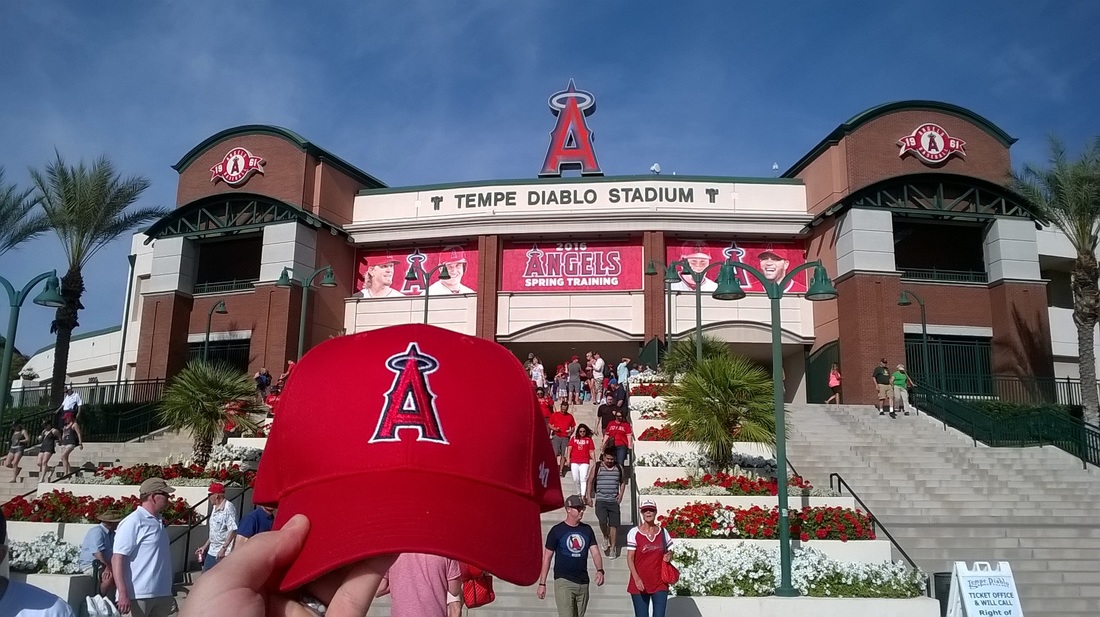

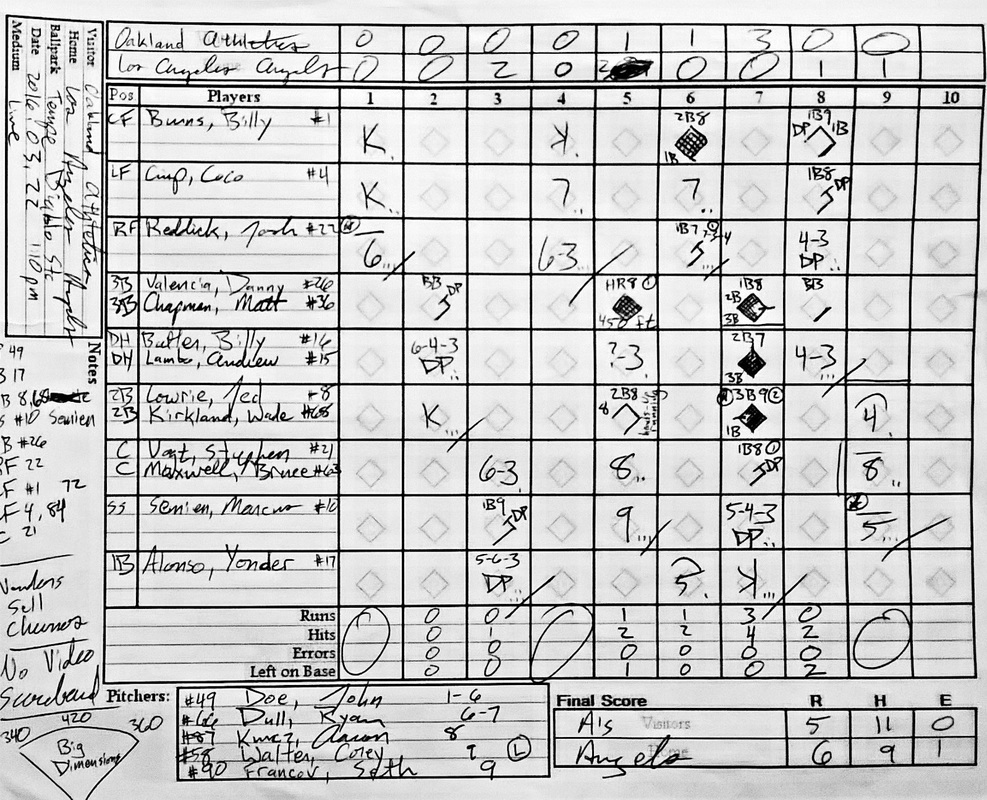
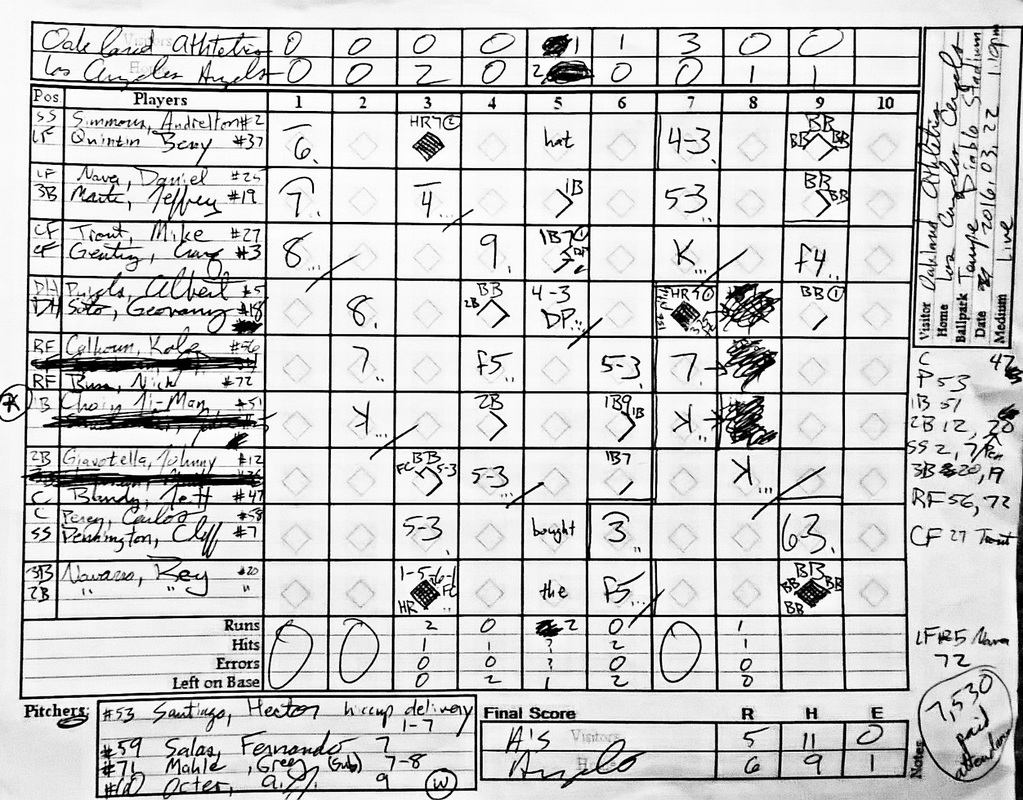

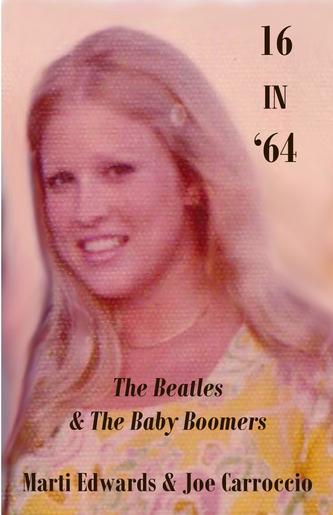
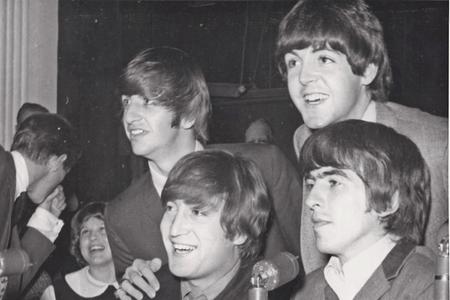
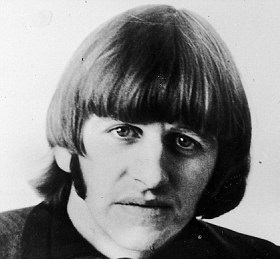


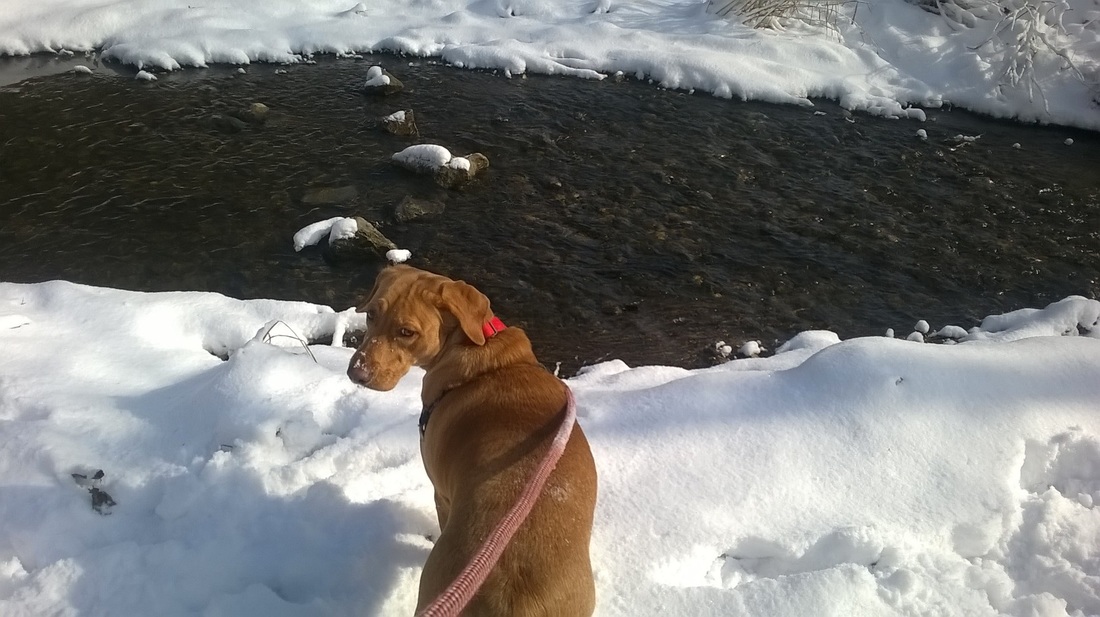
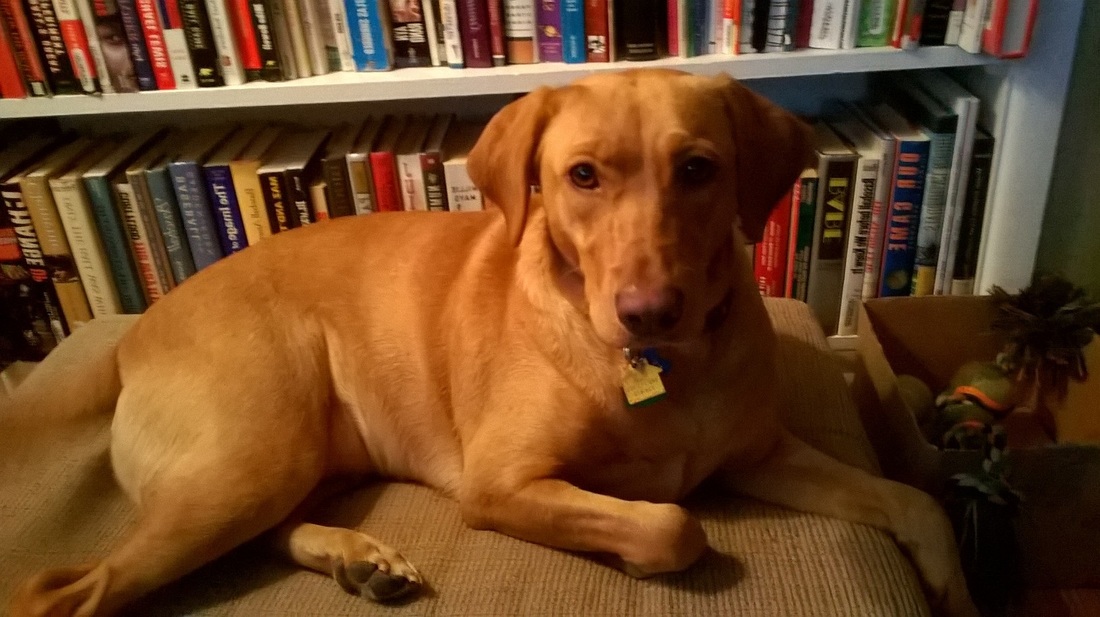
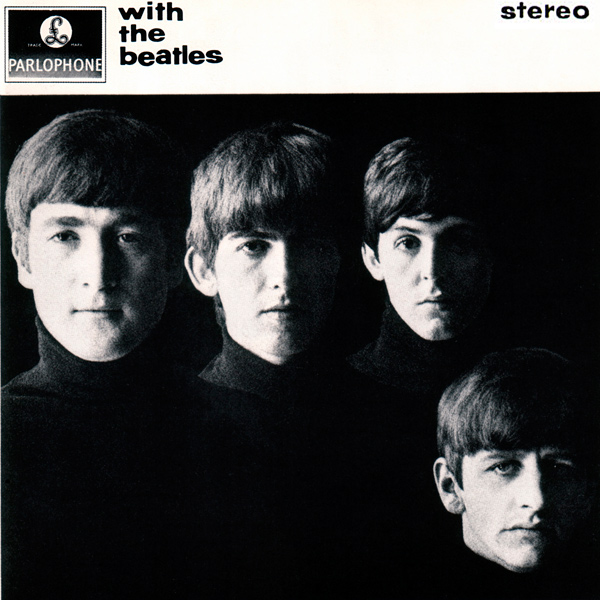
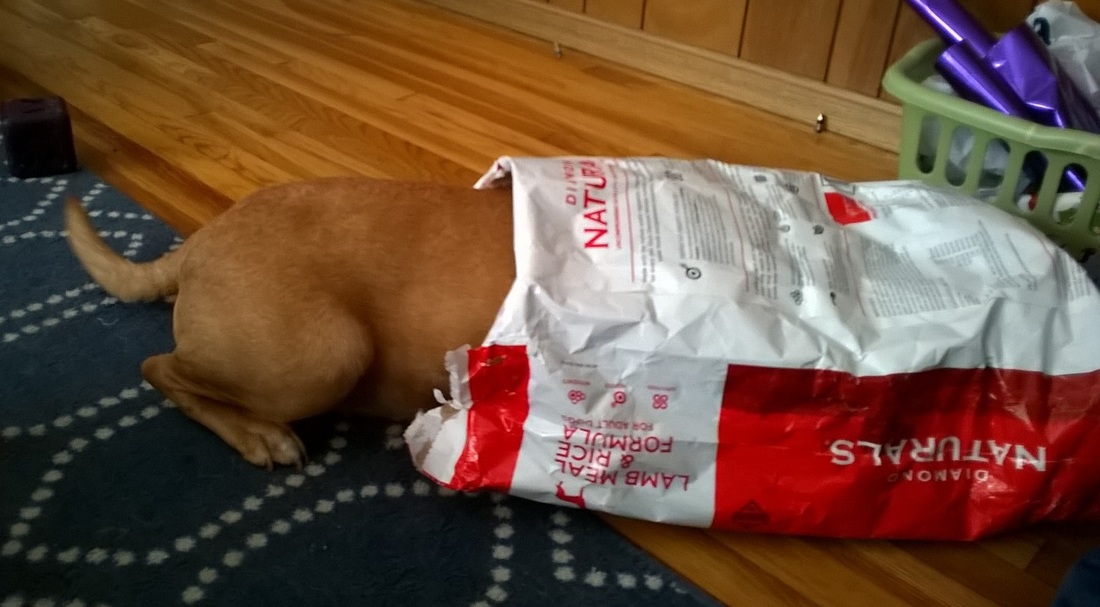
 RSS Feed
RSS Feed
